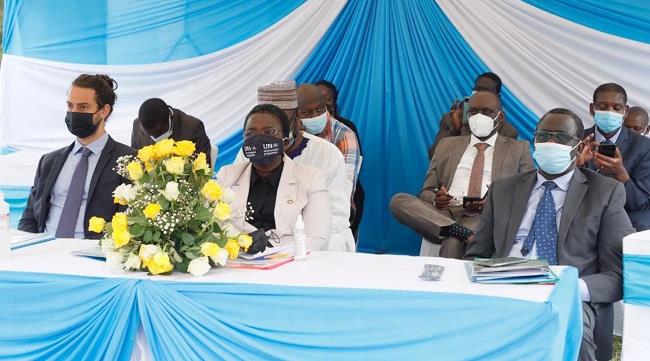Italian Agency for Development Cooperation (AICS) Office in Kenya and the United Nations Environment Programme (UNEP), Regional Office for Africa jointly launched last week the project: “Transformation of Climate action through utilisation of a hybridised Clean and Sustainable Energy as a driver to climate-smart agriculture and agribusiness value chain”.

The ceremony was held at the presence of the Deputy Governor of Nakuru, Mr. Erik Korir; Mr. David Mutisya from the Ministry of Energy of Kenya; Ms Juliette Biao, UNEP’s regional director for Africa; Mr. Jared Othieno from the Geothermal Development Company in Kenya; and Mr. Francesco Palumbo Programme officer from AICS. A video message by the Italian Ambassador to Kenya Alberto Pieri set off the project launch.
As Covid-19 pandemic continues, it is affecting water, food, and energy systems through decrease in purchasing power and difficulties for small-scale farmers in obtaining the inputs needed for their production. Therefore, thanks to a 300.000 Euros support of the Italian Government through AICS, UNEP in close collaboration with the Nakuru County Government will implement a 14-month pilot project to provide access to sufficient, sustainable, and alternative sources of energy (solar and geothermal) to foster Climate-Smart Agriculture for women and youth small-holder farmers living in Rongai sub-County in Nakuru.
In his remarks Amb. Alberto Pieri highlighted Italy’s priority to scale up its partnership with Africa, underlying in this context the initiatives of the Italian Cooperation in Kenya aimed at promoting renewable energy and sustainable development.
“The project we launch today is thus a further proof of our commitment. To strive for countering climate change by enhancing the use of clean and sustainable energy while also impacting positively on agriculture, a crucial sector for Kenya,” Pieri stated.
“The interlinkages of water, energy and food supply systems are a major consideration in Kenya’s sustainable development strategy,” said Juliette Biao, UNEP’s Regional Director for Africa.
“The results of this project are expected to increase sustainable livelihood and income generating opportunities through capacity and skill development as well as research in both the energy and agricultural sectors for the small-holder farmers in Rongai,” she added.
Clean and renewable energy are important elements to counter climate change reducing C02 emissions and will be key tools to drive sustainable development and foster faster economic recovery in the wake of the Covid-19 pandemic.
This intervention thus aligns itself to the ongoing efforts of the Government of Kenya to mitigate the socio-economic effects of climate change, in line with its Nationally Determined Contributions on climate.
